The Impact of Seasonal Changes on a Heating and Cooling System
Understanding how these changes affect an HVAC system empowers homeowners to make informed decisions regarding operation, maintenance, and potential upgrades.
For a comfortable home environment year-round, a well-functioning Heating, Ventilation, and Air Conditioning (HVAC) system is essential. However, seasonal variations in temperature significantly impact the demands placed on this critical system. Understanding how these changes affect an HVAC system empowers homeowners to make informed decisions regarding operation, maintenance, and potential upgrades.
Summer's Heat: A Challenge for Cooling Systems
The scorching temperatures of summer push HVAC systems into overdrive. The air conditioning unit works tirelessly to maintain a desired cool temperature within the residence. This increased workload can lead to several potential consequences:
Increased Energy Consumption: As the system struggles to keep up with the demand for cool air, energy consumption rises. This issue translates to higher utility bills for homeowners.
Strain on System Components: The relentless operation can place significant strain on the compressor, condenser coil, and other critical parts of the AC unit. Regular maintenance becomes even more crucial during this period to prevent potential breakdowns.
Reduced Efficiency: Dust and debris can gather on the condenser coil, hindering its ability to dissipate heat effectively. A dirty condenser coil reduces system efficiency and increases energy usage.
Strategies for Optimal Summer Operation
Several strategies can be enacted to optimize the performance of an HVAC system during the summer months:
Schedule Professional Maintenance: A professional maintenance inspection by a qualified HVAC technician before the summer season is highly recommended. This inspection identifies potential issues, allows for cleaning of the condenser coil, and confirms the system is operating at peak efficiency.
Upgrade to a Programmable Thermostat: This type of thermostat allows homeowners to set temperature adjustments throughout the day. Raising the thermostat slightly when the home is unoccupied can significantly reduce energy consumption.
Utilize Ceiling Fans: Ceiling fans create a wind chill effect, enhancing the feeling of coolness without requiring the air conditioner to work as hard.
Winter's Chill: Testing the Heating System
As temperatures plummet during winter, the focus shifts to the heating system. Similar to the summer months, winter presents unique challenges for an HVAC system:
Increased Wear: The furnace works diligently to maintain comfortable indoor temperatures throughout the winter. This continual operation can result in increased wear on system components.
Frozen Pipes: In colder climates, inadequate insulation around pipes or malfunctioning equipment can lead to frozen pipes, potentially causing significant water damage.
Ignition Issues: Cold weather can sometimes cause problems with the furnace's ignition system. Routine upkeep can help find and tackle these potential issues before they become a problem.
Strategies for Optimal Winter Operation
Several practices can be implemented to guarantee the smooth operation of an HVAC system during the winter months:
Schedule Professional Maintenance: A professional maintenance inspection before the winter season is vital. This check confirms the furnace is operating efficiently and safely, minimizing the risk of breakdowns during peak usage periods.
Seal Air Leaks: Leaks around windows and doors allow warm air to escape, forcing the furnace to work harder. Sealing these leaks can significantly improve heating efficiency.
Regular Filter Replacement: A clean air filter guarantees optimal airflow throughout the furnace. Clogged filters hinder performance and can lead to increased energy consumption.
Fall and Spring: Transition Periods
Fall and spring represent transitional periods for HVAC systems. During these times, homeowners can take proactive steps to prepare their systems for the upcoming season:
Fall System Checkup: A professional checkup in the fall allows technicians to address any lingering issues from summer operations and prepare the heating system for winter.
Spring Cleaning: Change the air filter in the spring to remove any dust or allergens accumulated during the winter months. Consider cleaning the vents around the house for improved airflow.
Investing in Comfort and Efficiency
By understanding the impact of seasonal changes on their HVAC systems, homeowners can make informed decisions regarding operation, maintenance, and potential upgrades. Regular professional maintenance inspections are crucial for maximizing system performance, preventing breakdowns, and extending the lifespan of the equipment. Furthermore, implementing strategies for optimal seasonal operation can lead to notable energy savings and a more comfortable home environment year-round. Consulting with an HVAC expert can provide valuable insights and recommendations specific to the unique needs of a home and climate.
Call CMB Air when you need help with your heating system. We offer a wide variety of heating services ranging from HVAC replacement, HVAC blower motor, heating installation and replacement, heating repair and maintenance, heat pump installation, heat pump repair, and heat pump replacement. Get in touch with our experts at (813) 447-1443.

